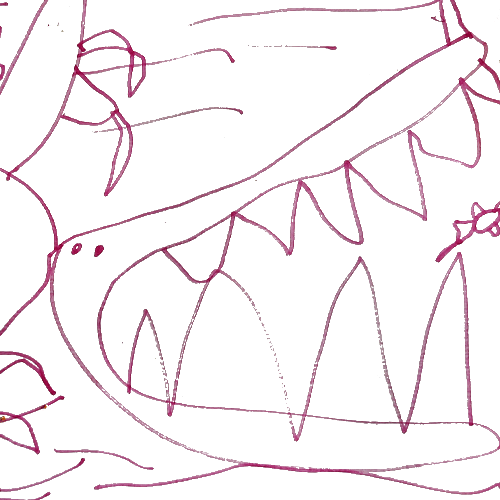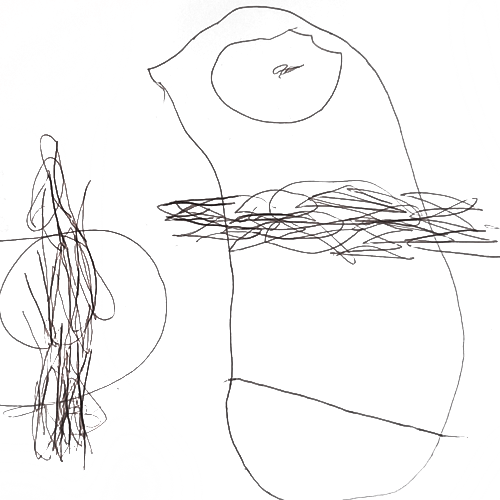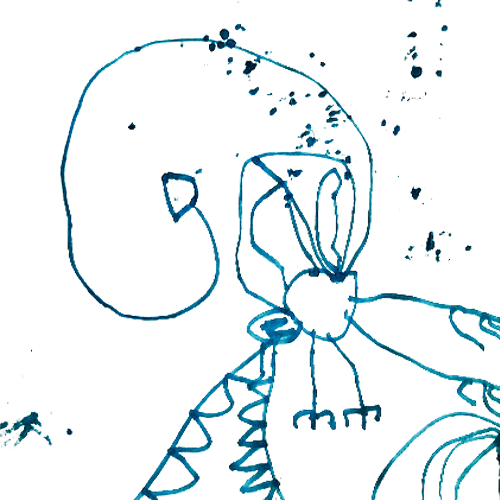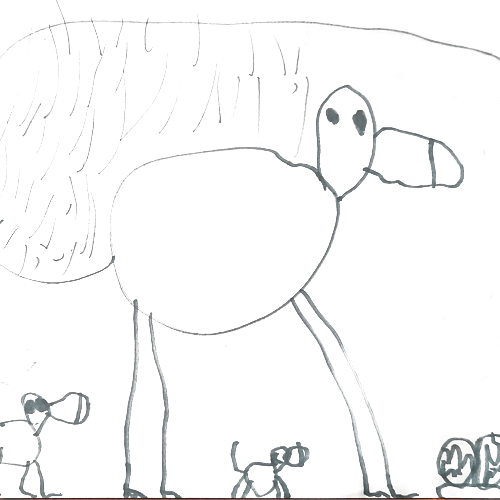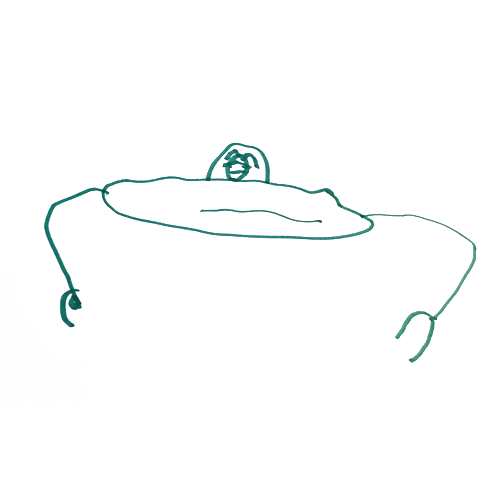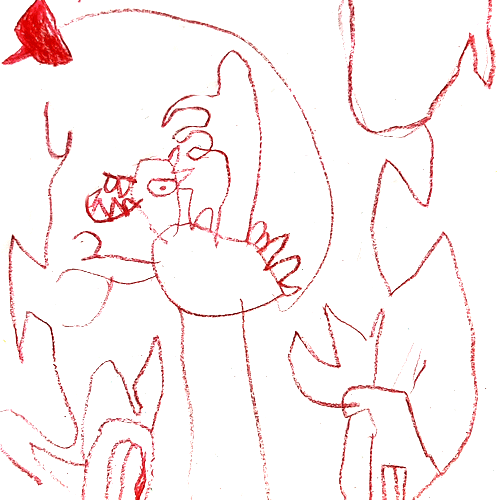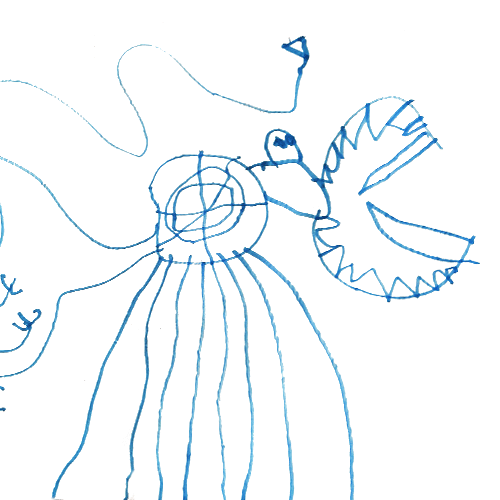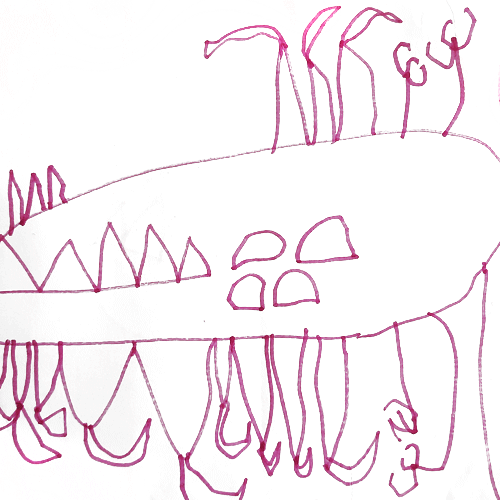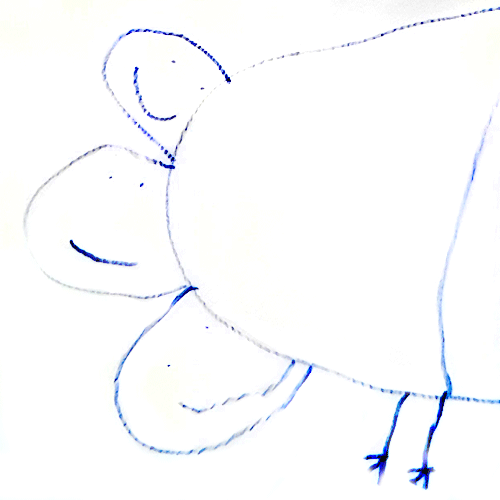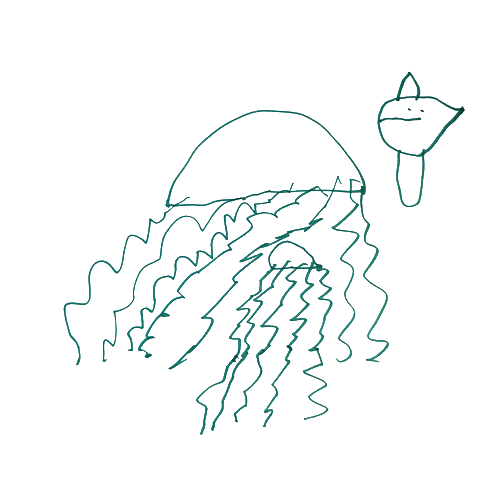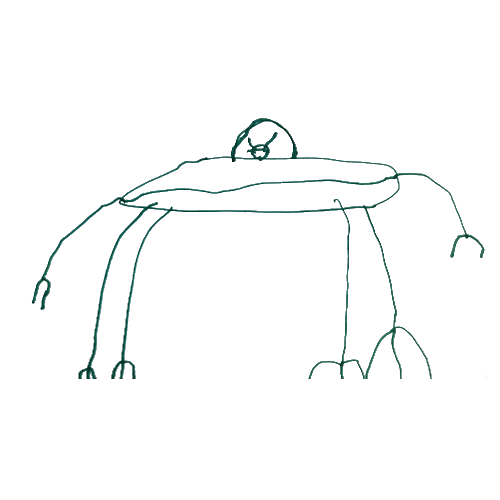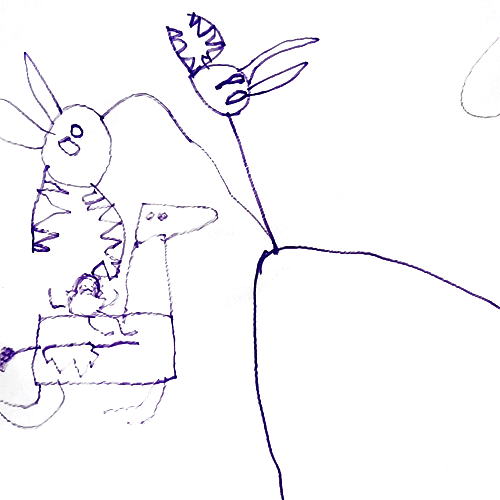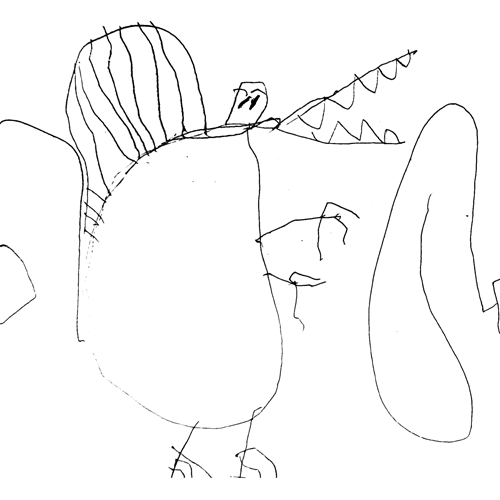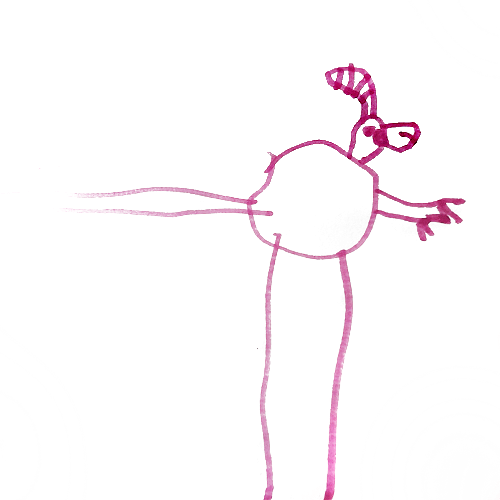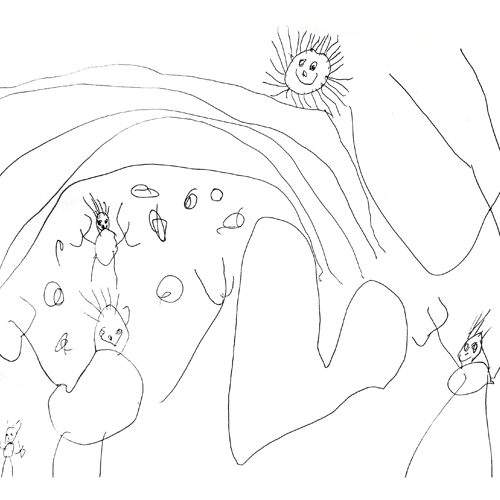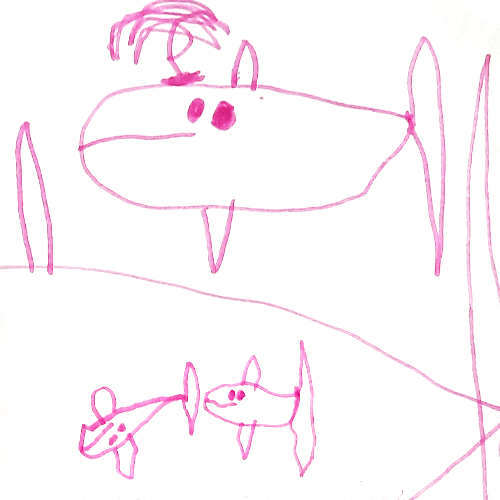Darganfyddwch ganfyddiadau ymchwil, adroddiadau, ac astudiaethau a gynhaliwyd gan sefydliadau ac ymchwilwyr eraill sy’n ymwneud â chyfranogiad plant. Mae’r adran hon yn cynnig safbwyntiau amrywiol ar y pwnc. Unwaith eto, noder na fydd yr adnoddau hyn o reidrwydd yn adlewyrchu safbwyntiau’r prosiect nac yn cael eu cymeradwyo ganddo.
Latest Ymchwil
Creating a culture of participation: Early childhood education and care educators in the face of change
This study reports on critical participatory research in an early childhood education and care centre in Finland.
Child participation in early childhood education in Spain: When having rights does not mean being able to exercise them
This article carried out a systematic review of the scientific literature on child participation in the formal education system in Spain between 2010 and 2022.
Enabling Children's participation: Putting the ‘good dialogues’ model into practice
Presenting results from an evaluation study of the feasibility and practical use of the Good Dialogues model, this article explores the ways in which practitioners manage to put the agenda of child-centred and child-guided dialogues with children underpinning this model into practice.
Where Are the Children’s Voices? A Scoping Review of Autistic Children’s Participation in Primary School Recess
This scoping review synthesizes research on recess involving autistic children, mapping data to a participation framework: the family of participation-related constructs (fPRC).
Participatory Research With Children: From Child-Rights Based Principles to Practical Guidelines for Meaningful and Ethical Participation
Based on UNCRC principles for ethical and meaningful child participation, this paper conceptualises practical guidelines for participatory research with children and youth
A ‘Participatory School’ in Iran: A Bottom-Up Learning Approach in a Top-Down Education System
This article highlights the shift in Iran’s one-dimensional teacher-centered approach to the triangular student-facilitator-parent approach.
Values and Needs of Children With and Without Special Educational Needs in Early School Years: A Study of Young Children’s Views on What Matters to Them
56 children aged 5-7 in Sweden share matters that they consider important for their wellbeing and development. Themes are found and compared to previous linked research.
Voice, views and the UNCRC Articles 12 and 13
Focusing on children aged 4-8, this research article presents the lack of voice children are facilitated within England’s education system.
Toddlers with the Doll Carriage: Children Doing Space of Participation in Early Childhood Education
This article presents a collection of small stories from a Finnish ECE center focusing on children under the age of 3 years. The findings of this article showcase the benefits of material items for children’s ownership of space, constructing peer relationships, and creating boundaries of one’s space.
Teachers’ role as human rights educators: the views of citizenship educators in England and Japan
Drawing on interviews with expert citizenship teachers in England and Japan, this paper draws on empirical insights into teachers’ roles as human rights educators in relation to students’ participation rights
Participatory research methods with young children: a systematic literature review
An up-to-date systematic literature review on the use of participatory research methods with young children.
Early Childhood Education in Wales: Policy, Promises and Practice Realities
This paper, co-written by co-investigator Dr Jane Waters-Davies examines two critical aspects of the education policy-practice landscape in early years education in Wales.
A rights-based exploration of children’s pedagogic voice in the classroom.
This recent article led by Gaby Martinez Sainz and the fabulous team at the Children’s School Lives project in Ireland, is worth a read to anyone interested in our research.
CPiS Policy Briefing WELSH
This policy briefing concerns findings from a legislative and policy analysis of Welsh education documentation relation to young children’s participative rights in schools.
Student voice for promoting inclusion in primary schools
This paper reports on the findings of a study which focused on exploring how inclusion in a primary school setting can be promoted through an engagement with student voice.
Student voice and teacher voice in educational research: a systematic review of 25 years of literature from 1995–2020
This systematic describes the link between student voice and teacher voice, providing a framework for identifying the extent to which certain views and perspectives are prioritised in research, and whether the participatory function of the positioned research is doing what it sets out to do.
Developing a model for child participation in child welfare services
This article reports on the development of a child participation model in child welfare services
The role of beliefs in teacher agency.
In this paper, the researchers draw upon results from a two-study into teacher agency in Scotland to consider different ideological debates about its role.
Look who's talking: Eliciting the voice of children
Grounded in children’s rights, this special issue aims to advance understanding of the affordances and constraints of implementing Article 12 of the United Nations Convention on the Rights of the Child (UNCRC) in educational settings with young children – those aged seven and under
Theorizing student voice: Values and perspectives.
This article explores some of the core values which underpin student voice work
Whose ‘voice’ is it anyway? The paradoxes of the participatory narrative
This study discusses some of the paradoxes found in the rhetoric of participatory research with children.
Hearing young children's voices
This paper reports on a study that aimed to investigate if ‘eliciting their children’s voices impacts on the children’s learning, development and well-being, and if so, how’.
Embracing the UNCRC in Wales (UK): Policy, pedagogy and prejudices
This paper reports on a meta-analysis of quantitative and qualitative data that suggests that the models of childhood held by teachers impacts on how they respond to the UNCRC
Exploring the extent of enactment of young children's rights in the education system in Wales
This paper presents the findings of a review of readily available empirically based literature that evidences the extent to which young children in Wales (aged three to seven) routinely access their rights in education settings
Bridging the theory and practice of eliciting the voices of young children: Findings from the look Who's talking project
This article explores issues relating to the complex, challenging and under-researched area of eliciting child voice, from the perspective of practitioners working with children aged from birth to seven
Preservice Teachers' beliefs about childhood: Challenges for a participatory early childhood education?
This study examines preservice teachers' beliefs about childhood in an attempt to see how they may support an active, participatory role for children in early childhood education (ECE).
Belonging, community and capability: Listening to the voices of young children to realise process quality in early childhood curriculum enactment in Wales
This paper addresses the problem of how to achieve process quality in early childhood education (ECE) in a manner that attends to young children’s views
Can you hear me? Problematising the enactment of UNCRC Article 12 in Welsh early years classrooms, exploring the challenges of ‘children’s voice’
This paper explores teacher enactment of the UNCRC Article 12, a child’s right to participate and give their view within the context of Welsh early years settings (children aged 3-7)
A Focus Group Study on Participatory Practices in Early Childhood Education and Care Across Four European Countries
This study, inspired by the Lundy model (2007) examined teacher’s perceptions about child participation practices in 4 European Countries.
Participative rights in Welsh primary schools: Unpicking the policy rhetoric
This paper analyses and evaluates legislation and policy on children’s participative rights in Wales from 2000 to 2022, arguing there is a gap between policy and practice.
Towards attentive, playful arts-based methodology with children
This paper shares methodological insights from a piece on research which aimed to centre children on a study undertaken during the 2020 global pandemic.
Co-constructions, co-performances and co-reflections in early years qualitative research
This reflective paper written by early years researchers investigates their own role in co-construction in qualitative data analysis.
‘The power to SAY what I want to and it gets written down’: Situating children's and adults' voices and silence in participatory research
Co-constructed by adults and children, this paper examines and discusses the authors’ experience of a participatory research project.
Most of the Time we are Taking Decisions for Children
This paper investigates final-year student teachers in South Africa’s understanding about children’s participatory rights and how this influences their practice.
Does Participation Benefit Children’s Socio-Emotional Development? Positive Associations Between Children’s Participation and Self-Concept, Through Children’s Perceptions
This study examines associations between ECE teachers’ participation practices, observations of teacher-child interactions and children’s socio-emotional outcomes mediated by children’s perceptions of their own participation.
Exploring children’s participation from Froebelian practitioners’ perspectives in Scottish context
This piece of qualitative research investigates Scottish early years practitioners’ perspectives about children’s participation through a Froebelian lens.
Supporting Regional and Remote Children’s Participation in High Quality Early Years Services
This paper addresses the knowledge gap surrounding children’s participation in early childhood education (ECE) in regional/remote areas of Australia by exploring the perspectives of early childhood centre directors and educators who work directly in ECE services
A Caring Ethic and the Rights of the Child: Challenges for Early Childhood Education
This conceptual piece considers the following questions: what are the rights of the child, and how can these be centered in discussions of pedagogy, curricula and legislation in an American political and policy context.
Children’s participation in documentation processes in local outdoor spaces
This paper reports on a study that aimed to investigate how children ‘perform and document Land Art in local places ear their kindergarten’ and how they visualise their experience through drawings.
Questioning ‘voice’ and silence: Exploring creative and participatory approaches to researching with children through a Reggio Emilian lens
This paper draws upon the philosophy of Reggio Emilia to contribute to the debate around the ‘voice’ of the child in qualitative by exploring creative and participatory approaches to researching with children.
Parents Connect Hub: Parents and Children’s Rights
Access the children’s rights section of the new Parents Connect Hub from Children in Wales.
Includes resources such as multi-lingual UNCRC posters and an Understanding Children’s Rights booklet.
Constructing child participation in early years classrooms: An exploration from Wales
This article was written by members of our team as a precursor to the project. The paper addresses the problem that, despite supportive policy contexts, enactment of pedagogies that attend to young children's participation rights in classroom settings is highly variable.
Learner experiences of low attainment groups in the context of a rights approach to education
This paper looks at attainment grouping in Wales and its effect on learner's experiences in the context of a rights approach to education.
A new dawn or false hope? Exploring the early implementation of Curriculum for Wales
This discussion paper explores the early evolution of the CfW. Taking a balanced approach, it considers the concept of subsidiarity and how it may be a ‘double-edged sword'.
Young children's right to be heard on the quality of their education: Addressing potential misunderstandings in the context of early childhood education
This paper explores potential misrepresentations of young children’s participation in decision-making in the context of early childhood education.
Children's participation in international fora: The experiences and perspectives of children and adults
This research explores the differing perceptions and experiences of children participating in high-level global events.
Child-researcher relationships in child protection research. An integrative review
This paper explores the nature of child-researcher relationships as well as examining researchers positions to further understand the impact of contexts on meaning making in research with children.
Children as co-researchers and confessional research tales: Researcher positionality and the (dis)comforts of research
In this paper, researchers reflect on the challenges of co-creation research with children in a study on children, families and food messages in Australia.
Is silencing children unethical?
This blog post considers how ethical approval procedures in higher education institutions can contribute to the silencing of children’s voices in research
The Tree(s) of Hope and Ambition: An arts‐based social science informed, participatory research method to explore children's future hopes, ambitions and support in relation to COVID‐19.
This paper reports on the findings of a longitudinal, arts-based social science-informed project that explored children’s hopes and ambitions after the COVID-19 pandemic.
Researcher positionality in eliciting young children’s perspectives
This research article focuses on the different types of issues that arise with research positionality drawing attention to the contingent and contextual nature of children’s engagement in the research process.
The meanings of ‘child participation’ in international and European policies on children(’s rights): A content analysis
This content analysis examines the differing meanings of ‘child participation’ in international and European policies on children’s rights. This paper argues that the multi-layered and complex concept of participation can lead to ambiguity resulting in discrepancies between policy and practice.
Turning the UNCRC upside down: a bottom-up perspective on children's rights
This paper will present some of the significant early findings around a potential disjunction between rhetorical rights and lived rights. The authors will argue that the implementation and action around children's rights should be positioned from a bottom-up perspective, rather than constrained to the United Nations Convention on the Rights of the Child Articles.
A response to decentralised governance of human rights: a Children's Rights Approach in Wales
This paper uses Wales as an “example of jurisdiction where decentralisation is a feature of children's rights, which has enabled a progressive approach to implementation"
Children's Rights and Policy-Making: a 6 P framework.
This article discusses core elements of child’s rights policy through a six-point ‘P’ framework
The Field of Children's Rights: Taking Stock, Travelling Forward.
This article reviews the field of children’s rights research, in recognition of the 30 years of the UNCRC.
Revisiting the Three Rs in Order to Realize Children’s Educational Rights: Relationships, Resources, and Redress.
This chapter from the Oxford Handbook of Children’s Rights considers children’s educational rights through the lens of ‘the three ‘R’s’
Life Under Coronavirus: Children’s Views on their Experiences of their Human Rights
This ground-breaking article describes the process and findings of the Life Under Coronavirus Study which captured the experience of over 26,000 children in 137 countries during the COVID-19 pandemic
‘Why am I in all of these pictures?’ From Learning Stories to Lived Stories: the politics of children’s participation in documentation practice
This paper reports on how young children’s participation rights were enacted within a set of Learning Stories in one Scottish nursery.
“What if we give them too much voice?” Teachers’ perceptions of the child’s right to participation
This paper reports on the findings from a set of interviews with high school teachers in Johannesburg on their understanding of the child’s rights to participation in matters that affect them
Turning the UNCRC upside down: a bottom-up perspective on children’s rights
This paper looks at the lived experience of children, from their own perspective, on their rights.
The relationship between subjective well-being in school and children’s participation rights: International evidence from the Children’s Worlds survey
Using data from the Children’s World survey, this paper focuses on the association between children’s involvement in decision-making in school and their subjective well-being
The development of a rights-based approach to participation: from peripheral involvement to central participation of children, parents and professionals
This paper reports on one aspect of a larger project which aims to understand the importance of participatory pedagogies when building up a rights-based approach in schools.
Spatially Democratic Pedagogy: Children’s Design and Co-Creation of Classroom Space
This paper reports on the findings of an intervention in a primary school in Wales where children were given the opportunity to design and co-create their classroom space
Perceptions of Prospective Pre-school Teachers Regarding Children’s Right to Participate in Classroom Activities
This paper reports on the positive and negative behaviours regarding children’s participation rights of pre-school teachers
Measuring Children’s Experience of Their Right to Participate in School and Community: A Rights-Based Approach
This paper uses a qualitive methodology to test the reliability of a new children’s rights-based measure.
Learning from children’s voices in schools: Experiences from Ireland
This research brings together children and young people, teachers, school principals and parents to gauge their opinions towards participation by students in Irish schools
“In Fact, We Can All Decide”. An Action Research on the Participation Right of Young Children
This research aims to encourage young children’s participation rights through planning concrete and new arrangements in school
Implementation of content related to children’s rights in schools: How to teach them? Perceptions of future teachers in Serbia, Croatia and Slovenia
This paper reports on future teacher’s familiarity with the UNCRC based on self-assessment.
Four arenas of school-based participation: towards a heuristic for children’s rights-informed education practice
This paper looks at the links made by young people between their participation rights and ‘doing well’ at school
Children’s rights-based approaches: the challenges of listening to taboo/discriminatory issues and moving beyond children’s participation
This paper draws upon ethnographic research undertaken in Scotland, critically reflecting on children’s rights-based approaches and processes of children’s active participation in early childhood settings.
Children’s perspectives on why and when teachers listen to their ideas: Exploring opportunities for participation in the early years of school
This paper reports on the results of a longitudinal interview study with children aged 6 to 9 years of age In Australia. Children were interviewed about their perspectives of being listened to by their teachers.
Children changing spaces, changing schools
This participatory action research takes place in the UK, using an original approach to consider children’s participation in schools.
An Analysis of Children’s Right to Participation at Primary Schools in Turkey: A Case Study
This case study looks at a primary school in Turkey to explore to what level children’s right to participation was realised.
Children’s right to participation in AI: Exploring transnational co-creative approaches to foster child-inclusive AI policy and practice
This policy review uses the context of the UNCRC to consider the lack of children’s participation on a global scale in AI policy and practice.
Child participatory research methods: Attempts to go ‘deeper’
Using participatory methods with children in Ireland, this paper reflects on how to achieve ‘deeper’ participation.
Children’s participation: moving from the performative to the social
This article presents findings from a study of children’s own experiences of participation in a variety of contexts such as at home, at school and in the community.
Using participatory design approaches in educational research
This paper draws upon methodological foundations of participatory methods in education from Scandinavia, and how these principles can be applied in a modern, educational context.
‘I wish that COVID would disappear, and we'd all be together’: Maintaining Children's friendships during the Covid-19 pandemic
This research listens to the voices of 10 children regarding friendship disruption during the COVID-19 pandemic. Data is collected through creative participatory methods including drawings, photographs and collages.
Children as co-researchers in pandemic times: Power and participation in the use of digital dialogues with children during the COVID-19 lockdown
This paper documents co-participatory research with children in six primary schools in Ireland during the COVID-19 pandemic.
Reimagining children's participation: a child rights informed approach to social justice in tourism
Using two examples of child injustice in tourism-related contexts, this paper proposes the needs for a child-rights informed approach to participation in tourism research, policy and practice.
An investigation of early childhood education teachers’ attitudes, behaviours, and views regarding the rights of the child
This study investigates the attitudes, behaviors, and views on the rights of the child in early childhood education (ECE) teachers in Turkey.
How educators commit to enhancing children’s participation in early childhood education pedagogical plans
This descriptive study investigates how practices of children’s participation were conceived in pedagogical plans made by early childhood educator staff.
Teachers’ practices mediate the association between teachers’ ideas and children’s perceived participation in early childhood education
This quantitative study investigates if early childhood education teachers’ ideas on children’s participation is associated with child participation.
Children’s participation rights in schools — teachers’ beliefs and practices
This paper investigates Croatian elementary, middle, and high school teachers' beliefs about children’s participation.
Child Participation in the Early Years: Challenges for Education
This research article reviews the field of child participation in Australia, claiming that young children’s participation rights are not key agenda items for early childhood education.
Children’s Participation, Childhood Publics and Social Change
This paper reviews children’s participation in England, offering an alternative perspective by reconnecting children’s rights to social movements and the possibility of child publics
Multi-dimensional lens to article 12 of the UNCRC: a model to enhance children’s participation
This article explores the experiences of marginalised children in Brazil, examining how their identities can either help or hinder their participation.
‘Can we see our voices?’ Young children’s own contributions to authentic child participation as a pillar for sustainability under the United Nations Convention on the Rights of the Child (UNCRC)
This paper explores how the implementation of a rights-based research methodology can contribute to climate change research and education with young children.
Reflections on the enactment of children’s participation rights through research: Between transactional and relational spaces
This research article reflects on the development of young people’s participation – in particular through a transformational model of participation
My Corona: listening to children in corona times
This research paper brings together three of the young journalists who worked on The Corona Times Journal to reflect on their experiences of being involved in the project.
Voices of young children aged 3-7 years in educational research: an international systematic literature review
This first of its kind systematic review explores how and if, young children’s voices are listened to in education research
Through a different lens: exploring Reggio Emilia in a Welsh context
This paper explores the results of a project that was granted funding to introduce the Reggio Emilia approach into Welsh schools
Thirty years after the UNCRC: children and young people’s participation continues to struggle in a COVID-19 word
This article examines the implication of the COVID-19 pandemic on children and young people’s participation rights.
‘Doing Reggio?’ Exploring the complexity of ‘curriculum’ migration through a comparison of Reggio Emilia, Italy and the EYFS, England
This paper explores key aspects of the Reggio Emilia method, comparing it with the curriculum for young children within England.
Children's right to participate in early childhood education settings: A systematic review
This systematic review explores the ways in which early education research attends to children’s participation.
‘Voice’ is not enough: conceptualising Article 12 of the United Nations Convention on the Rights of the Child
This paper from Laura Lundy introduces the ‘Lundy Model’ for children and young people’s participation.
Children and Young People’s Participation: Good Practice guide
This resource from the Welsh Government, aimed at practitioners, and anybody who works with children, provides best practice guidelines for children’s participation.
7 Golden rules for participation – Childrens Commission for Scotland
Follow this link to access a child friendly resource produced by the Children’s Commissioner for Scotland on the ‘7 Golden Rules for Participation’. Includes prompts for both children and adults to think about.
Listen and Change. A Guide to Children and Young People’s Participation Rights
This is a guide provided by Save the Children on children and young people’s participation rights.
Council of Europe – Child Participation Rights
A link to the Council of Europe’s section of their website on Children’s Participation.
Preschool children’s agency in education for sustainability: the case of Sweden
This research article explores how the revised preschool curriculum in Sweden has encouraged and improved children’s participation and agency in relation to sustainability.

